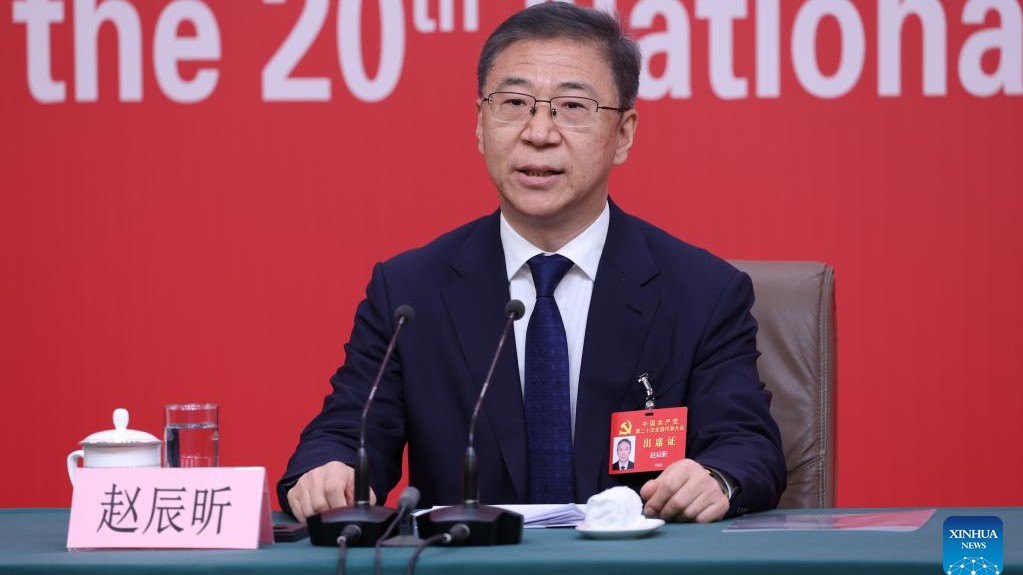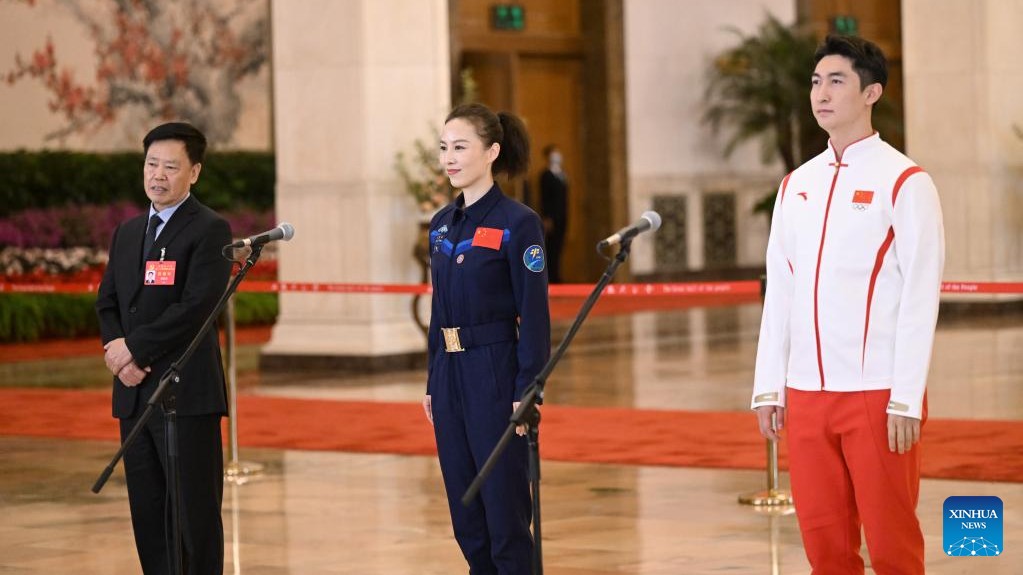On June 19, 2020, the Information Office of the People's Government of Xinjiang Uygur Autonomous Region held the 10th press conference on Xinjiang related issues. The press conference invited the Spokesperson of the Information Office of the People’s Government of XUAR Elijan Anayit, the Deputy Director of the Ethnic, Religious, Foreign and Overseas Chinese Affairs Committee of the Standing Committee of the People’s Congress of XUAR Iqbal Idal, the Director of the Department of Human Resources and Social Security of XUAR Rehmanjan Dawut, the Director of the Ethnic Affairs Commission of XUAR Mehmut Usman, the Deputy Director of the Public Security Department of XUAR Yalkun Yakufu, an ex-trainee of Kashgar City Vocational Education and Training Center Muradil Muhtar and an ex-trainee of Aksu City Vocational Education and Training Center Mirzat Talat.
Host of press conference: Deputy Head of the Publicity Department of the CPC Xinjiang Committee Xu Guixiang
Xu Guixiang: Dear friends from the press, good afternoon. Welcome to the 10th press conference on Xinjiang related issues.
The invitees of today's press conference are the Spokesperson of the Information Office of the People’s Government of XUAR Elijan Anayit, the Deputy Director of the Ethnic, Religious, Foreign and Overseas Chinese Affairs Committee of the Standing Committee of the People’s Congress of XUAR Iqbal Idal, the Director of the Department of Human Resources and Social Security of XUAR Rehmanjan Dawut, the Director of the Ethnic Affairs Commission of XUAR Mehmut Usman, the Deputy Director of the Public Security Department of XUAR Yalkun Yakufu, an ex-trainee of Kashgar City Vocational Education and Training Center Muradil Muhtar and an ex-trainee of Aksu City Vocational Education and Training Center Mirzat Talat. They will answer questions from you.
Our friends from the press, please raise your hands to ask questions. Before asking questions, please introduce the name of the news press you are in.
Reporter from Xinhua News Agency
Question 1: Of late days, the US signed the "Uyghur Human Rights Policy Act of 2020" into law. What's your comment?Thank you.
Xu Guixiang: This question goes to Iqbal Idal.
Answer: In defiance of China's opposition and the prevailing view of the international community, the U.S. insistently concocted the so-called "Uyghur Human Rights Policy Act of 2020" wantonly denigrating and groundlessly accusing Xinjiang's counter-terrorism and deradicalization efforts and human rights situation. Such acts grossly violated the international law and international norms, interfered in China's internal affairs, and hurt the people of all ethnic groups in Xinjiang. Therefore, Xinjiang government and its people of all ethnic groups strongly denounce and oppose it.
Xinjiang related issues are not about human rights, ethnicity or religion, but about fighting terrorism and separatism. For some time Xinjiang was plagued by terrorism and religious extremism. Faced with such a stern situation, Xinjiang took resolute measures to combat terrorism and carry out deradicalization work in accordance with the law, effectively curbing the frequent violent terrorist incidents and protecting the rights to life and development of the people of all ethnic groups. Highly recognized by the international community, Xinjiang's counter terrorism and deradicalization efforts has made an significant contribution to the international cause of counter-terrorism.
Up till today, there have been no terrorist incidents in Xinjiang for more than three years in a row. Extremism has been brought under control effectively, public security situation improved considerably, and people's sense of gain, happiness and security greatly enhanced. However, the US goes against the prevailing trend, using the Act to condone terrorism and extremism to abet and pep up the "three evil forces," which can only lay bare its hideous intentions for power and hegemony in the name of democracy and human rights, its discretionary bullying behaviors over other countries, and its sinister motives to disrupt the harmonious and stable situation in Xinjiang and contain China's development.
Xinjiang is China's Xinjiang and its affairs are China’s internal affairs which allow no foreign interference.The so called "Uyghur Human Rights Policy Act of 2020" is just worthless pieces of paper, which by no means can disrupt Xinjiang's prosperity and stability, stop its people of all ethnicities from pursuing a better future in solidarity, and obliterate the hard fact-the region's development and progress in human rights. In Xinjiang people's pursuit of a better life, any attempt to contain China by playing "Xinjiang card" is bound to inflict harm on itself.
Xu Guixiang: Thank you. Our friends from the press, please go ahead to ask questions.
Reporter from China News Service
Question 2: The “Uyghur Human Rights Policy Act of 2020” claims that, the special action to crack down on violent terrorist activities launched by Xinjiang in 2014 used the fight against violent terrorism as an excuse to suppress its ethnic minorities. Do you have a comment on that?
Xu Guixiang: This question goes to Yalkun Yakufu.
Answer: Since the 1990s, especially after the September 11 attacks in the US, affected by changes in the international landscape and spread of terrorism and extremism around the globe,the separatist, terrorist and extremist forces in and outside China have deceitfully used people’s ethnic identity and religious belief to spread religious extremism. They have plotted and carried out thousands of violent and terrorist attacks, killing large numbers of innocent people and hundreds of police officers, and causing immeasurable damage to property. The bloody and heinous violent terrorist crimes have brought enormous suffering to all ethnic groups in Xinjiang.
The situation is severe and complex; members of all ethnic groups are insistent in their demands that violent and terrorist crimes be punished, and that their lives and property should be protected. Therefore, Xinjiang regional government has been active in implementing the United Nations Global Counter terrorism Strategy and other anti-terrorism resolutions, firmly opposed linking terrorism and extremism with any specific region, ethnic group or religion. The local government lawfully strikes at all sorts of violent terrorist activities that violate human rights, endanger public security, undermine ethnic unity, and attempt to split the country. Since 2014, Xinjiang has destroyed 1,588 violent terrorist gangs, arrested 12,995 violent terrorists, seized 2,052 explosive devices, effectively curbing the frequent occurrences of violent terrorist activities and ensuring, to the maximum extent, the rights to life and development of people of all ethnic groups in Xinjiang.
For a long time, the US wantonly applies “double standards” in anti-terrorism, considering violent terrorist activities targeted at the US as monstrous crimes, but those aiming at Xinjiang as priceless treasures, even whitewashing the violent terrorist activities happened in Xinjiang as national liberation movement and hailing the violent terrorists as democratic fighters. To name just a few of the terrorist cases, on April 23, 2013, the violent terrorist attack in Selibuya Town, Bachu County, Kashgar Prefecture caused 15 deaths and 2 severely injured; the violent terrorist attack on October 28 that year on the Golden Water Bridge of Tiananmen Square in Beijing killed 2 people, including 1 foreigner, and injured over 40.
The US refused to agree with China’s definition of the nature of the violent terrorist cases; on the contrary, it confused right and wrong with ambiguous language and obscured the violent terrorist nature of the cases. However, after the Boston bombing, the US immediately defined it as “an act of terrorism”. The Act that the US passed this time gave terrorist forces a shot in the arm, but its essential purpose is to use them as cannon fodder to disrupt Xinjiang’s stability and development. We advise the US that those who play with fire will burn themselves, and those who behave unjustly will kill themselves. If the US continues to meddle the affairs and stir up the fire, it will end up swallowing a bitter fruit.
Xu Guixiang: Thank you. Our friends from the press, please go ahead to ask questions.
Reporter from China Global Television Network (CGTN)
Question 3: The so-called Uyghur Human Rights Policy Act of 2020 alleged that Xinjiang education and training centers are “concentration camps”in which more than1 million Uygur and other minorities are imprisoned there. What is your response for that ?
Xu Guixiang: This question goes to Elijan Anayit.
Answer: The law-based vocational education and training centers had no essential differences from the “community corrections” of the U.S., the DDP of Britain(Desistance and Disengagement Program), and “anti-extremism centers” in France.They were all beneficial attempt and positive measures in precautionary anti-terrorism and deradicalization with the aim to exterminate extremism and prevent the terrorism activities upgrading.
The education and training centers strictly carried out the basic principles in respect and guarantee Human rights based in the Constitution and the law to prevent any violation of the basic rights of trainees, prohibit any humiliating or degrading acts to the trainees.Those centers fully guaranteed the personal freedom of trainees, it adopted a boarding school management system,trainees had home visits and can ask for leave for attending to private affairs.At those centers, the right of all trainees in using their spoken and written languages were fully protected. The regulations, curriculum, and menus at the centers all used local ethnic languages as well as standard Chinese. The customs of all ethnic groups were fully respected and protected, and a variety of nutritious Muslim food was provided free of charge for ethnic minority trainees.The education and training centers also respected the trainees’ freedom of religious belief.They can decide on their own whether to do so on a legal basis when they get home.Living facilities were fully prepared in the centers.All dorms had radios, television, air conditioner. The center had medical facilities available to trainees, capable of treating minor ailments. The sports venues for playing basketball, volleyball or ping pang were available as well as cultural venues such as reading room, computer room and movie cinema. The centers also had auditoriums and outdoor stages for recreational activities. All those facilities could maximally meet the need for trainees in the requirement of study and live. Is there any "interment camp" or "concentration camp" like this in the world? So ridiculous.
U.S. touted that education and training centers were “detention camp” were proven false by people of insight around the world. Many media reporters who had visited education and training center made objective and fair reports. For example, in Jan. 2019, a Turkish reporter said after his visit that “some west media made very negative report on the education and training centers.one of there report said that the concentration camps were built in Xinjiang and someone were getting abused and tortured in there. Those impression hooked in my mind before I came here. But all those bias escaped after the visit. I saw a real education institution and trainees were absorbing knowledge for improving themselves so that become someone with moral virtues. The very good atmosphere there helps the trainees reintegrate into the society.”
As for what the Act said that “more than one million Uygur people are imprisoned in those education and training center ” is purely fabricated. According with some report, the sensationalized rumor firstly appealed and spread by the “China Human Rights Defense”(CHRD), which was a non governmental organization sponsored by American government.This organization got the absurd conclusion that “10% of the total 20 million people in Xinjiang are detained in the reeducation camps”only by interviewing eight Uygur people and rough estimation by themselves. Some American politicians used such shoddy statistics to attack and smear Xinjiang’s education and training program speaks volumes about logical absurdity in their minds, and about the fact that the Act has no bottom line, no basis, no reason, but full of loopholes and lies.
Xu Guixiang: Thank you. Our friends from the press, please go ahead to ask questions.
Reporter from Xinjiang Broadcast and Television Station
Question 4: According to the "Uyghur Human Rights Policy Act of 2020", the vocational education and training centers had harsh conditions and lacked of medical facilities. Trainees there were forced to be politicized, tortured and deprived of the rights to freedom of religion, culture, and language. Can I ask some trainees for their opinions on this allegation?
Xu Guixiang: Today, we have invited Muradil Muhtar and Mirzat Talat, two trainees respectively graduated from Kashgar City Vocational Education and Training Center and Aksu City Vocational Education and Training Center to this conference. I’d like to ask them to share with you their experiences and feelings.
Trainee from Kashgar City Vocational Education and Training Center: My name is Muradil Muhtar. I am a graduated trainee from Kashgar City Vocational Education and Training Center. Now I am a salesman of an industrial products wholesale shop. As a graduated trainee, I’m best qualified to speak on this matter. When I first went into the center, I saw a lot of buildings, flowers, grassland, and specious and clean classrooms. Every classroom was equipped with multimedia teaching facilities which provided great convenience for our study. We have TVs, air conditioners and bathrooms in the dormitories. The condition of the dormitory was better than my home.
At the center, from Monday to Friday, we had 6 classes every day. We learned courses on the standard spoken and written Chinese language, legal knowledge, vocational skills, and deradicalization. We could contact with our family members and friends at any time we like. We took days off at weekends, on holidays and festivals. Every week, when I came back home, I could take part in normal religious activities at the mosque. Our life at school was very colorful. We had reading rooms, recreation rooms and interest groups. Teachers taught us how to dance and sing. We had many cultural and sports activities, such as basketball matches, volleyball matches and art performance. There was also a school clinic, where offered 24-hour medical service. If we got a headache, felt uncomfortable, or caught a cold, doctors at the clinic could make a diagnosis and give us treatment at any time. We also had regular physical examinations. Our customs and habits were respected at the school. We had various nutritious halal food at the canteen free of charge. There was no physical punishment at all, let alone any torture. teachers at the school treated us as their family members. When we got sick, the teachers took very good care of us. They also prepared cakes for and sent best wishes to us on our birthdays.
Speaking from the bottom of my heart, I think the vocational education and training center is the best school I’ve ever been to. I learned a lot of knowledge there and got teachers’ care and love. I felt extremely moved and grateful. If I haven’t been to the center, I don’t know what kind of person I would become. It was the education and training center that pulled me back from the edge of the cliff, educated, and saved me and my family. I want to ask the US to stop fabricating lies.
Trainee from Aksu City Vocational Education and Training Center: My name is Mirzat Talat. I’m a graduated trainee from Aksu City Vocational Education and Training Center. From my point of view, the vocational education and training center is a boarding school, people-oriented management there made us feel like staying at home. The center had never restricted any trainee’s personal freedom. On weekends, holidays and festivals, we could go back home to get together with our family. On weekdays, we could contact with them by telephone, ask for leave if we had personal affairs to deal with. I remember when one of our classmates was going to marry his girlfriend, the center gave him a 15-day marriage leave and we all expressed our wishes to him.
We learned standard spoken and written Chinese language but we can use our own ethnic language freely in the education and training center. We are provided with Uygur books as well as special classes including Uygur songs, dances, handcrafts and so on. We can sing, dance and watch movies. Many classmates who participated in the singing or dancing groups have become skilled talents. They found jobs in travel agencies and art troupes after they completed their studies in the centers. Some learned traditional Uygur skills, such as music instrument manufacturing, ethnic painting, embroidery and wood carving. After graduation, they started their own businesses, opened workshops and led a good life.
Our religious beliefs are well protected in accordance with the law during the study. Teachers told us that vocational education and training centers are schools, thus religious activities are not permitted. While we are back home during the holidays, it is determined by ourselves whether to pray at home or to go to the mosque for the Koran interpretation by imam. We have never been interfered by anyone. I want to take this opportunity to clarify that America’s allegations that our rights to religion, culture and language are deprived are total nonsense! Instead of being deceived by the rumors again, I sincerely invite friends around the world to travel around Xinjiang and communicate with us, thus to know about the truth.
Xu Guixiang: Thank you. Our friends from the press, please go ahead to ask questions.
Reporter from Xinjiang Daily
Question 5: The Act alleges that Xinjiang has put in place discriminatory policies against its ethnic minorities, depriving their civil and political rights, including travel, communication and fair trails. Is it true?
Xu Guixiang: This question goes to Yalkun Yakufu.
Answer: China's Constitution prescribes that its citizens' personal freedom and freedom of correspondence are protected. We noticed some overseas mistakenly claim that Xinjiang "restricts Uygurs and other ethnic minorities from making overseas trips and disallows them to keep in touch with their relatives abroad." Such allegations are rumors and slanders that go completely against the facts.
Xinjiang has never limited people of all ethnic groups including Uygurs from traveling, nor has it restricted their free communication with their relatives in foreign countries. At present, there are a few hundred thousand people native to Xinjiang living across the world. People of all ethnicities in Xinjiang are free to contact their relatives in foreign countries, either via a phone call, or via audio or video link on instant messaging apps like Wechat and QQ. Some people who do cross-border businesses all can negotiate business deals through all kinds of communications. Hereby, I reiterate that any individual in Xinjiang, regardless of his or her ethnicity, is free to travel abroad unless he or she is disallowed to do so on suspicion of committing crimes. In accordance with the the Constitution, no organization or individual may, on any ground, infringe upon citizens' freedom of correspondence, except in cases where, to meet the needs of state security or criminal investigation, public security or procuratorial organs are permitted to censor correspondence in accordance with procedures prescribed by law.
China is a country under rule of law and upholds equality before the law. Whoever from whichever ethnic group violates the law and commits a crime will be punished by law.Based on facts and laws, Xinjiang’s judicial organs have always adopted a policy that strikes a balance between compassion and severity. According to the principles of legal penalty corresponding to crime, no punishment for doubtful case of crime, and evidentiary adjudication, the judicial organs have protected criminal suspects’ right to a fair trial, as well as criminal suspects and defendants’ rights to defense and to use the language of their ethnic group for litigation in process of investigation, prosecution, trial, execution, etc. Meanwhile, the principle of open trials has been strictly followed.All cases are heard in public except those not allowed by law. The US’s accusation that Xinjiang “deprives its ethnic minorities of their right to a fair trial” is entirely baseless.
Xu Guixiang: Thank you. Our friends from the press, please go ahead to ask questions.
Reporter from Xinjiang Station of China National Radio
Question 6: The "Uyghur Human Rights Policy Act of 2020" alleged that Xinjiang “deprived ethnic minorities of their right to religious belief” and “persecuted religious freedom”. What is your comment on that?
Xu Guixiang: This question goes to Mehmut Usman.
Answer: The Act of the United States defines Xinjiang’s law-based measures in religious affairs as “confinement and persecution of Muslims’ religious belief”, which suppresses the truth out of ulterior motives. The people of all ethnic groups in Xinjiang have their freedom of religious belief fully protected. Citizens are entitled to choose to be religious believers or non-believers. Citizen’s normal religious activities in venues for religious activities or at home are protected by law. No citizen is ever punished due to their legitimate religious belief in Xinjiang.
The American act smears that Xinjiang “has deprived ethnic minorities of their right to religious belief” and “persecuted religious freedom”. I’d like to ask, religious classics and books have been translated and published, including the Koran and Selections from Al-Sahih Muhammad Ibn-Ismail al-Bukhari, in the Han Chinese, Uygur, Kazakh and Kirgiz languages. Is it the reflection of safeguarding religious believers’ access to religious knowledge or the result of religion elimination? I’d like to ask, since 1996, the government has arranged chartered flights for religious believers to Mecca for pilgrimage. Is this the reflection of protecting citizens’ rights to religious belief or the result of prosecuting religious freedom?
It is evident to the international community who does better and who does worse in protecting Muslims basic rights. American policies’ intolerance towards Islamic world continue to deteriorate, and its “Muslim ban” policy has shocked the international community. In the US, there are more and more discrimination to the Muslim. In the mid-term election in 2018, “more than one third candidates alleged that the Muslim are violent in nature or bring in looming threats.” “more than one third of candidates call for depriving the basic rights of the Muslim or alleged that the Islam is not a religion.” The report of Council on American-Islamic Relations (CAIR) shows that in 2017, more than one third anti-Muslim incidents were incited by the federal government. According to Pew Research Center, 82% interviewees believe that the Muslim are discriminated in the US. I would like to ask some American politicians: in the face of your own notorious religious problems, on what grounds are you based to smear Xinjiang? Your shameful fabrication of lies is sickening!
Xu Guixiang: Thank you. Our friends from the press, please go ahead to ask questions.
Reporter from Global Times
Question 7. According to the foreign news sources, Xinjiang is undergoing “forced demolition of mosques”. Could you tell if that is really happening?
Xu Guixiang: This question goes to Mehmut Usman.
Answer: The so-called “forced demolition of mosques in Xinjiang” is a complete nonsense. Xinjiang guarantees legal religious needs of religious believers,attaching great importance to preservation and renovation of mosques. Quite a large number of mosques in Xinjiang were built in 1980s and 1990s or even earlier. With development of urbanization and new countryside construction, within the framework of such projects as urban shantytown reconstruction and beautiful countryside construction, the local governments of Xinjiang have adjusted arrangement of some old, shabby, run-down mosques by newly building, relocating and enlarging them in accordance with the needs of religious believers, which has provided convenience to believers when praying and is welcomed by the religious personnel and believers.
Recently, some foreign media slandered that Xinjiang had demolished Jami Mosque in Yecheng county of Kashgar prefecture and Id Kah Mosque in Yutian county of Hotan prefecture. But the reality is totally opposite. Both of the over 100-year-old mosque was not demolished, instead, it is in preservation and in a good shape. In September 2018, the main building and tower of Jami Mosque were evaluated as D-level dilapidated building by relevant departments. In order to protect life and property safety of religious believers, after approval of Religious Affairs Department, People's Government of Yecheng county, the main building and tower of the Mosque were reconstructed in February 2019. The mosque completed reconstruction and was put into use on March 6, 2019. Id Kah Mosque in Yutian county is also in good shape and has been listed as National-Level Protected Cultural Site Unit by the State Council. I want to ask these rumormongers of ulterior intentions: "You are making up fake stories, acting like a clown. Don’t you think it is absurd?"
Xu Guixiang: Thank you. Our friends from the press, please go ahead to ask questions.
Reporter from China Daily
Question 8: Recently, according to American non-governmental organization Global Policy Center, Xinjiang used high technological products to monitor Muslim ethnic minorities and some of them were put in the vocational education and training centers because of browsing overseas websites. Is that true?
Xu Guixiang: This question goes to Elijan Anayit.
Answer: Using modern technological products and big data to upgrade social governing level is a common practice in the international community. Xinjiang has installed cameras in public places of urban and rural areas, main roads, transportation hubs,etc., in order to improve the level of social governance, effectively prevent crimes and fight crimes in accordance with laws. These measures have gained sense of social security and widespread support by the people of all ethnic groups in Xinjiang. It should be emphasized that it is targeted at any ethnic group, and these monitoring measures themselves do not automatically identify and target any specific ethnic group.
As for the allegation that “some people were detained in the vocational education and raining enters because of browsing overseas websites” in this article, it is deliberately “stealing the concept.” For those who normally browse overseas websites, we do not make any interference. But the aim of some people influenced by extremism in browsing overseas websites is not to browse online information normally, but to spread terrorist and extremist audio and video clips, and some of them even use software to connect with overseas terrorist organizations and members to premeditate or plan the implementation of violent terrorist attacks in Xinjiang. For those people, we surely will deal with them according to law.
As everyone knows, the US has invested lots of manpower and material resources in high-tech monitoring. Actually, it is the “Big Brother” who is watching you. In 2017, the US President Trump signed an administrative order that 20 major airports across the country shall be installed with face scanner. Its intelligence and law enforcement departments have established facial repositories with photos of the driver’s licenses and head portrait of Facebook. And the photo repositories were available and searchable to law enforcement departments. A research by Georgetown University showed that more than half of the American adults have been brought into the face recognition system. Dallas Morning News printed a piece of news on December 6, 2019, that eight secret monitoring centers have been established in Texas only by the federal, state and local law enforcement departments. They shared information on the social media and other online forums. Report by the Government Accountability Office on June 4, 2019 indicated that the Federal Bureau of Investigation Face Analysis, Comparison, and Evaluation Services Unit could search the repositories with more than 641 million photos arbitrarily without legal permission. According to Snowden, American intelligence department monitored all cellphones and computers with access to the Internet all over the world 24 hours every day. Even leaders of their allied countries including Merkel, the Chancellor of Germany, cannot be exempted. The US, which is watching the whole world accused Xinjiang of violating human rights with high-tech and took that as an excuse to impose sanction on Chinese enterprises. It’s arrogant and high-handed gangster logic.
Xu Guixiang: Thank you. Our friends from the press, please go ahead to ask questions.
Reporter from Xinjiang Broadcast and Television Station
Question 9: It has been accused in the US “Uyghur Human Rights Policy Act of 2020” that there is forced labor for ethnic minorities in Xinjiang. Is it the true situation there?
Xu Guixiang: This question goes to Rehmanjan Dawut.
Answer: We have repeatedly pointed out on several occasions that the so-called accusation of “forced labor for ethnic minorities in Xinjiang” is totally out of thin air, a claim does not square with facts and stand up to reason. It is a ridiculous rumor fabricated by some agencies and their crew with a group of anti-China forces in the United States and some western countries.
As you may know that Xinjiang is a relatively underdeveloped region located in the northwest border area of China, and the four prefectures in Southern Xinjiang are recognized by the country as severely impoverished areas. Based on our experience on poverty alleviation, employment is the most effective way to solve the problem of poverty here. As long as one person secures a stable job, the whole family can be expected to be lifted out of poverty. In recent couple of years, a comprehensive prioritized policy for employment promotion has been adopted in Xinjiang to help poverty-stricken population of various ethnic groups find jobs and lead happy lives through hard working with high quality and full employment.
Firstly, optimizing industrial structure and promoting employment through multiple channels. Seizing tight the opportunities of the “Belt and Road” construction, we have improved the diversified industrial system. On the one hand, we have emphasized on developing capital, technology and knowledge-intensive industries, such as advanced manufacturing and strategic emerging industries. On the other hand, we have stressed on expanding employment scale in labor-intensive industries including textile and garment making, tourism and catering, consumer electronics, shoes, hats, toys, wigs, and bags manufacturing, as well as e-commerce, cultural and creative industry, whole-region tourism, elderly care and health services, etc., so as to constantly boost employment in the industrial sector.
Secondly, focusing on certain groups with stable employment promoted with targeted measures. For college graduates, programs like “Starting from the Grassroots”, “Educational, Agricultural and Medical Supports and Poverty Alleviation Assistance Plan” and “Youth Employment Promotion Scheme” are introduced to guide and encourage the newly graduated young people to get employed in the grassroots and enterprises or start self-employment; for surplus labors in rural areas, local and nearby employment is encouraged through establishment of village workshops and poverty-alleviation factories in line with the local realities; village labor cooperation organizations are given special support to create more jobs; industrial parks are encouraged to provide stable jobs; and featured tourism is also developed to promote employment.
Special focuses has been put on the employment promotion for 22 severely impoverished counties in the four Southern Xinjiang prefectures with a three-year program being successfully rolled out. From 2018 to April of 2020, a total of 195,000 laborers from registered poor families have found jobs through transferred employment programs. In Kashgar and Hotan prefectures, the three-year surplus labor force assistance program has helped 135,000 people get employment in other places from 2017 to 2019. For those who have special difficulties and families that have no employed member, real name dynamic management and classified and targeted measures have been taken to help them with employment. Since 2014, 334,300 urban unemployed residents have been given assistance in finding jobs, and the employment demands from families with zero-employment have will be responded to and met within 24 hours when received by local community workers.
Thirdly, improving self-employment environment to generate employment through innovative entrepreneurship.Supporting policies for self-employment will be improved in continuity, such as providing loan guarantee with interest subsidies, allowances, taxation reduction or exemption, lowered market access threshold, etc. Preferential policies are granted to those entrepreneurs who have the wills and could meet the standards. Efforts have been stepped up in developing market-oriented, professional, integrated and network-based entrepreneurship clusters by providing a more preferential platform and equal services for entrepreneurs, and creating a favorable environment for innovative entrepreneurship development.
Fourthly, adhering to the market-driven approach to carry out extensively the labor skills training. We have set up an all-direction and multilevel vocational education system by developing vocational colleges, secondary technical and vocational schools, technical schools, employment training centers and company affiliated staff training centers and other vocational training forms. Based on the labor market demands, we have provided targeted courses for surplus urban and rural labors extensively to improve their overall qualities. Most of the courses are specially designed in line with the needs of employers or for certain posts to improve the trained laborers’ employability and secure stable jobs for them.
Fifthly, enhancing supporting measures to provide better public services for employment promotion. Systematic standards for public employment service have been introduced with improving public goods offered, such as policy consultation, unemployment and employment registration, job opportunities introduction, employment guidance, skills training and self-employment assistance, etc. Reform in public employment service has been deepened with a five-level public service network primarily established with special employment agencies founded in regional, prefectural, county, township and village-level public organs. By the end of 2019, there were 104 human resources markets above county-level in Xinjiang, and 8,668 grassroots labor insurance agencies and stations providing various employment services for over 20 million men-times in total.
With a series of employment promotion policies being rolled out, the work, life and mental outlook of the people have seen tremendous changes in Xinjiang, especially the southern part of the region. Today, the people are living an increasingly better-off life with fattening wallets, bigger smiles, and better state of mind. Across the region, one can see a delightful picture of every family having a way out of poverty and everyone having work to do, with income being earned every month.
It is necessary to point out here that helping people of various ethnic groups get employed is totally different from “forced labor”. As cited in the provision of Forced Labor Convention issued by UN International Labor Organization, forced labor, by its definition, is any work or service which people are forced to do against their will, under threat of any punishment. However, in Xinjiang, laborers’ will is taken as the foundation for making employment policy, creating job posts, and providing employment training and services. Workers of all ethnic groups are entitled to choose jobs totally depending on their own will with no restriction on their personal freedom at all.
In the meantime, Xinjiang has always attached great importance in protecting the rights of all workers against discrimination regardless of their ethnicity, gender, or religious belief. On the basis of equality and voluntariness, they sign labor contracts and establish employment relationship with their employers in accordance with law, and enjoy social insurances, including old-age pension, medical insurance, unemployment insurance, work-related injury insurance, and maternity insurance, etc.. Their pay shall not be lower than the minimum wage standard of the place where they work. Their ethnic customs and habits, freedom of religious belief, right to use their own spoken and written languages are fully respected and guaranteed, free from interference of any organization or individual. The employers provide halal food for their Muslim employees, and employees of all ethnic groups can independently choose to use any language for communication.
Xinjiang’s measures in helping its people of all ethnic groups address the employment issue are in line with China’s constitution, laws and regulations, as well as the fundamental spirits of The Charter of the International Labour Organization and other related international conventions, and are righteous endeavors that benefit its people, meet the aspiration of its people and win their support.
Nevertheless, the Act that the United Stated deliberately distorts the efforts that Xinjiang has made to realize stable employment, poverty alleviation and income increase for its ethnic minorities as forced labor. Its aim is to deprive ethnic minority laborers’ right to employment, and compressing Chinese enterprises while eroding the confidence of foreign investors, hence to eventually realize its plot of obstructing Xinjiang’s development.
And if we take a look at the human rights records of the US, we will see plenty of notorious and criminal acts of smuggling black slaves and Chinese laborers, and oppressing native Indians in its history. In particular, it has been admitted in its annual Trafficking in Persons Report issued by the State Council that the United State is the source, destination and transit country for human trafficking in the world, and even some American officials are involved in human trafficking and forced labor.
Hence it can be seen that the US is the very country where stark forced labor exists. Hereby, we urge the United States to stop playing the trick of a thief crying “stop thief”. People around the world have fair judgments in their hearts. After all, truth will not be covered up by lies for long and the people have a sense of natural justice.
Xu Guixiang: Thank you. Our friends from the press, please go ahead to ask questions.
Reporter from Tianshannet
Question 10: We have noticed that the US has been attacking Xinjiang’s human rights issues. They passed the “Act” this time claiming "Xinjiang severely abused human rights". How would you comment on this?
Xu Guixiang: This question goes to Elijan Anayit.
Answer: Development and improvement in Xinjiang’s human rights undertaking is obvious to all around the world. The living standards of people of all ethnic groups in Xinjiang have improved year after year. In 2019, the per capita urban and rural disposable income were 34,664 yuan and 13,122 yuan, respectively. From 2014 till the end of 2019, Xinjiang lifted a total of 2.9232 million people in 737,000 households out of poverty. The poverty headcount ratio dropped from 19.4% in 2013 to 1.24%. All rural residents below the current poverty line will shake off poverty and enter a moderately prosperous society in all respects together with the rest of the country by the end of 2020.
Employment scale is expanding steadily. Since 2014, on average, 471,200 urban and rural population has been newly employed annually, the registered unemployment rate has been kept below 4.5%. Zero-employment families are registered on dynamic file and given assistance to secure at least one job within 24 hours. In rural areas, esp. in those of southern Xinjiang, every family with eligible labor force has at least one person employed nearby, thus earning money and getting a better life.
Nine-year compulsory education covers the whole region, while south Xinjiang enjoys 15-year free education. The coverage of personal accident insurance, serious illness insurance has reached 100% among urban and rural residents, with social security participation rate reaching above 95%.
Besides, residents of various ethnicities are entitled to a free physical exam each year. It is worth noting that in combating COVID-19, Xinjiang cut off the epidemic spread in the shortest time, effectively containing it. So far, a total of 76 confirmed cases of COVID-19 has been reported; health and safety of all residents of various ethnicities in Xinjiang were guaranteed at maximum level.As of today, no new confirmed cases have been reported for 120 consecutive days.
Today's Xinjiang is in the best phase of prosperity and development in history, with people of various ethnicities working and living in peace and contentment, enjoying full basic rights of life and development. However, departing from entrenched prejudice and selective blindness with sinister motives, some US politicians keep ignoring the facts and truths, which only lays bare their hypocrisy in human rights.
In fact, America is the most severe country of human rights abuses around the world. In the world, the US unscrupulously carries out unilateralist policy of America Fist, rampantly interfere in other countries’ internal affairs,wields a big violent stick anywhere, and uses human rights and counter-terrorism as a cover to wage wars in Afghanistan, Iraq and Syria killing millions of innocent civilians and turning more into displaced refugees. The US supports the People’s Mujahideen of Iraq plotting separatist and terrorist activities, and implements the wiretapping program PRISM to conduct long-term large-scale monitoring of foreign dignitaries and related organizations. The issue of human rights become severer at the back of Statue of Liberty in America including civil rights in name only, ever-increasing income inequality, immigration policy separating children from parents, a common practice of internet surveillance,the notorious Guantanamo military prison,rising religious intolerance remarks.
Facing the outbreak of the COVID-19, the US government has not concentrated on containing the pandemic, but left no stone unturned to shift the blame and responsibility to others, leading 2.2 million infections and 120,000 deaths of innocent lives. In May 2020, a 46-year-old African American man named George Floyd was suffocated to death because a policeman kept kneeling on his neck in Minneapolis, which has triggered massive protests, unveiling the long-standing systemic racial discrimination scars in America again. Facing the overwhelming protests and 120,000deaths caused by the failure of anti-epidemic response, what makes them think they can judge human rights situation in Xinjiang?!
Xu Guixiang: Thank you. Today's press conference concludes now. Thanks all the invitees and reporters.


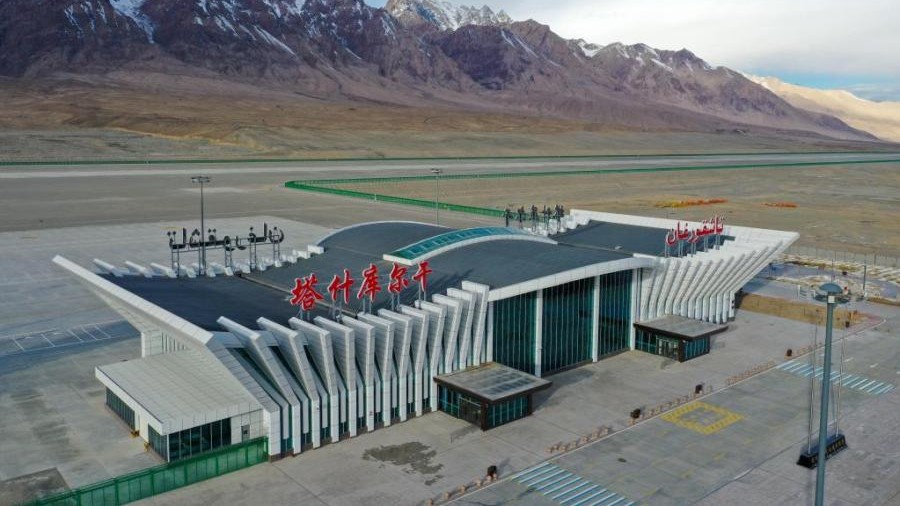

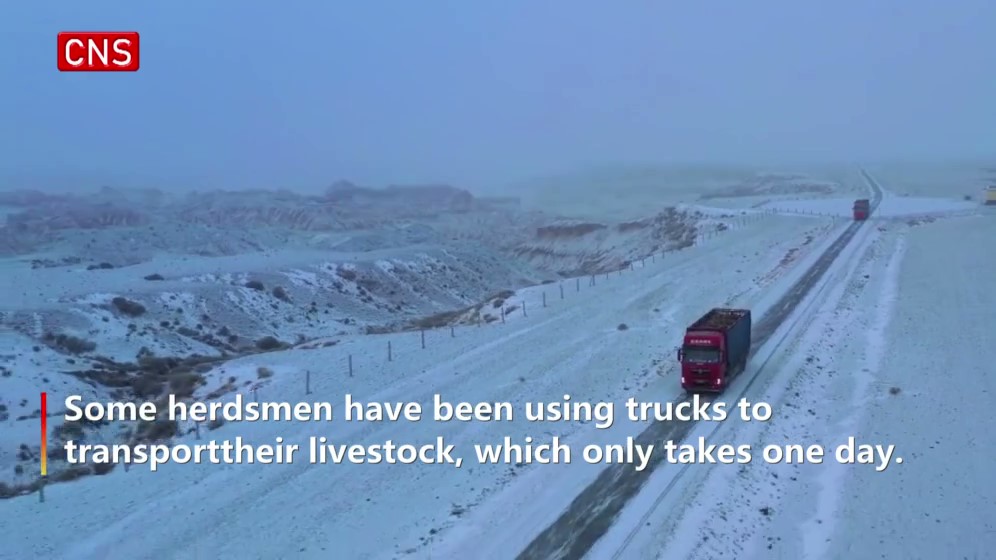
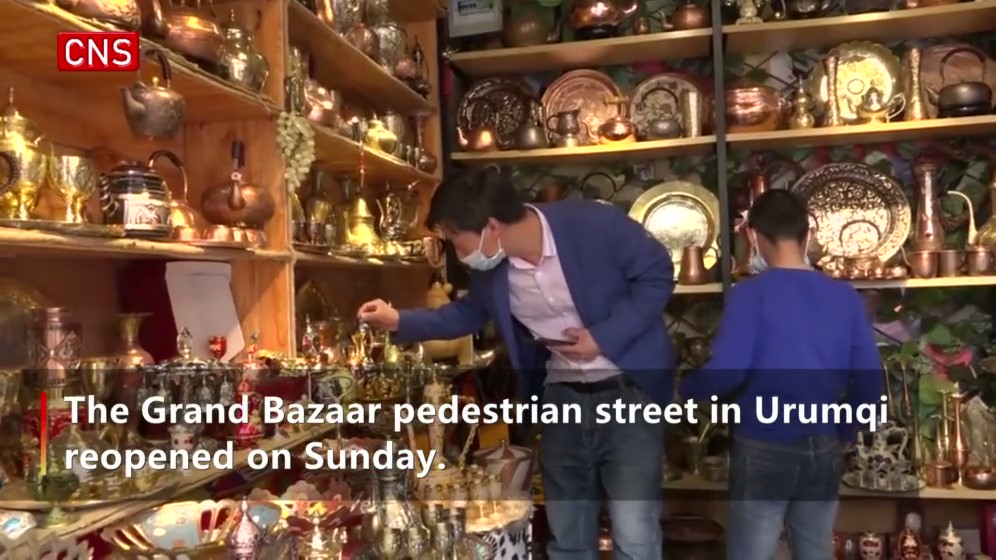

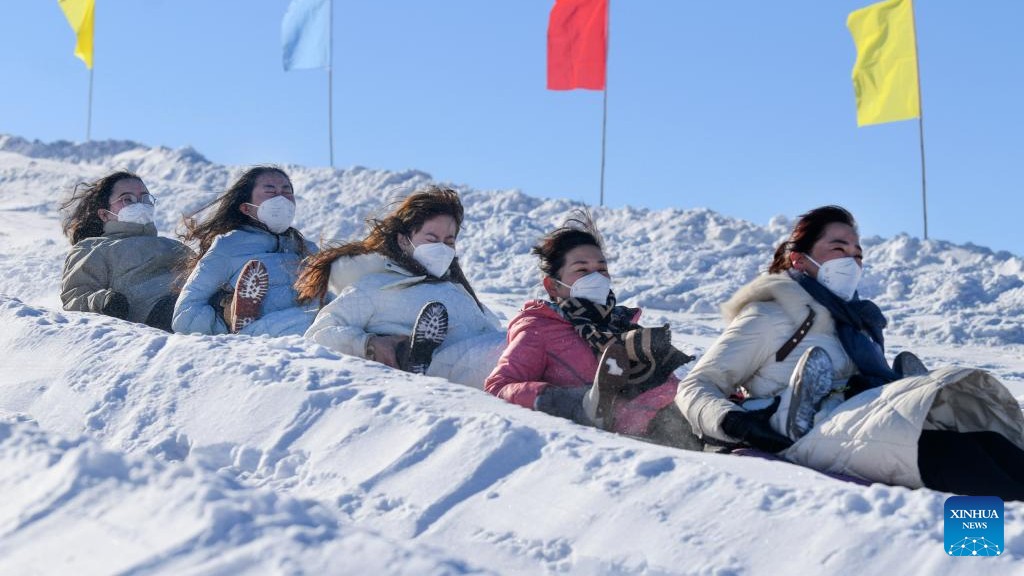


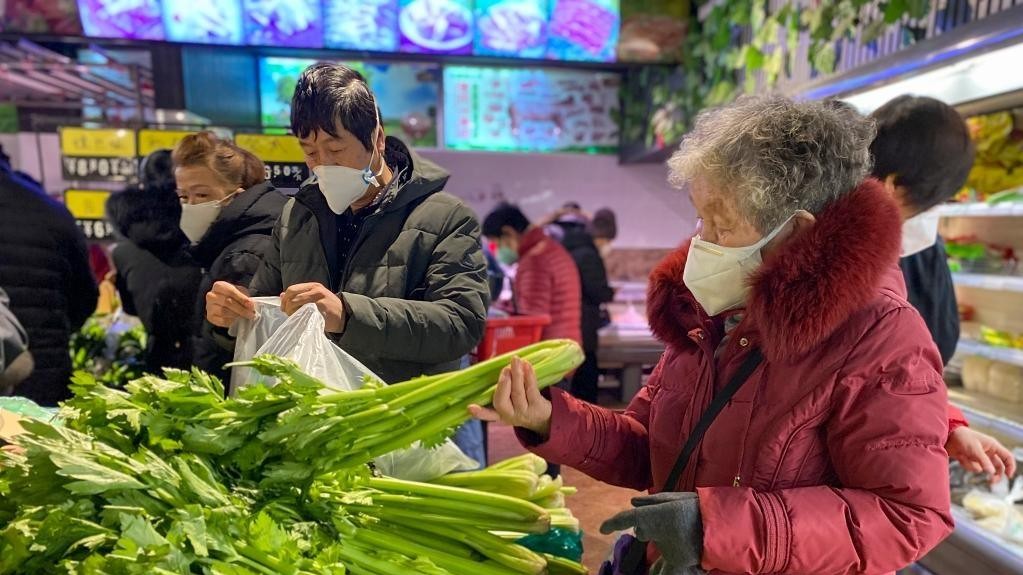

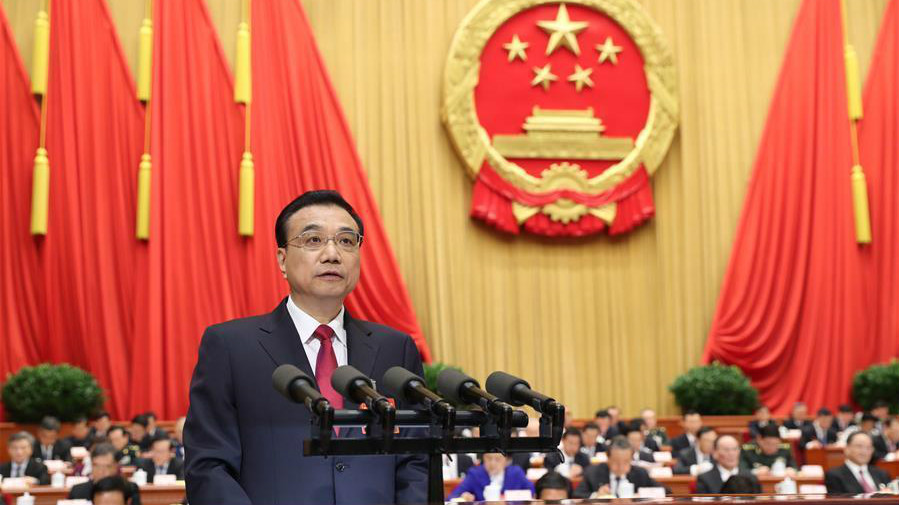
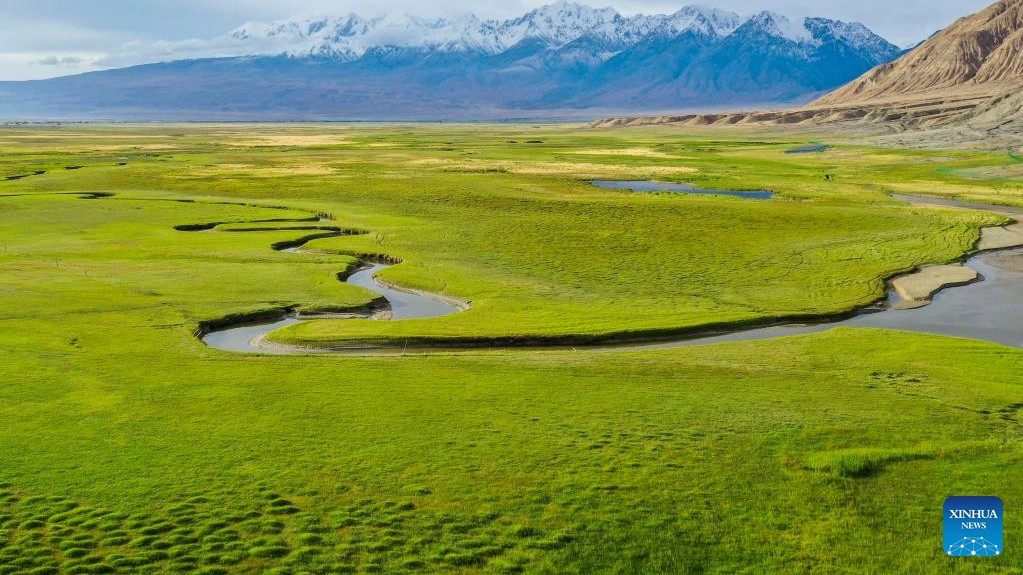
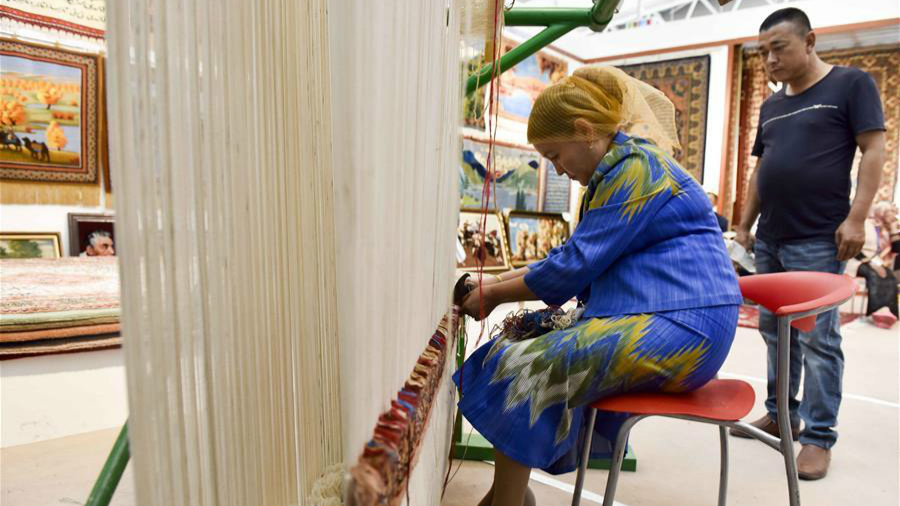
.jpg)

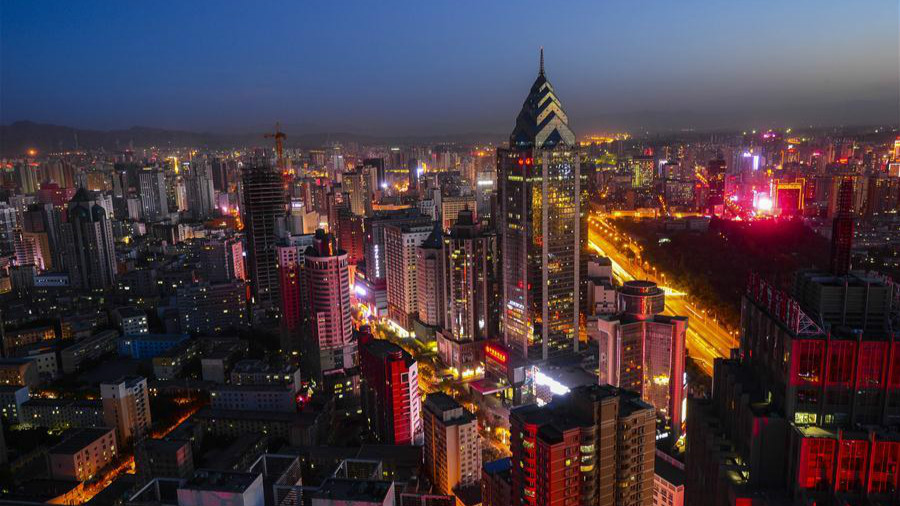
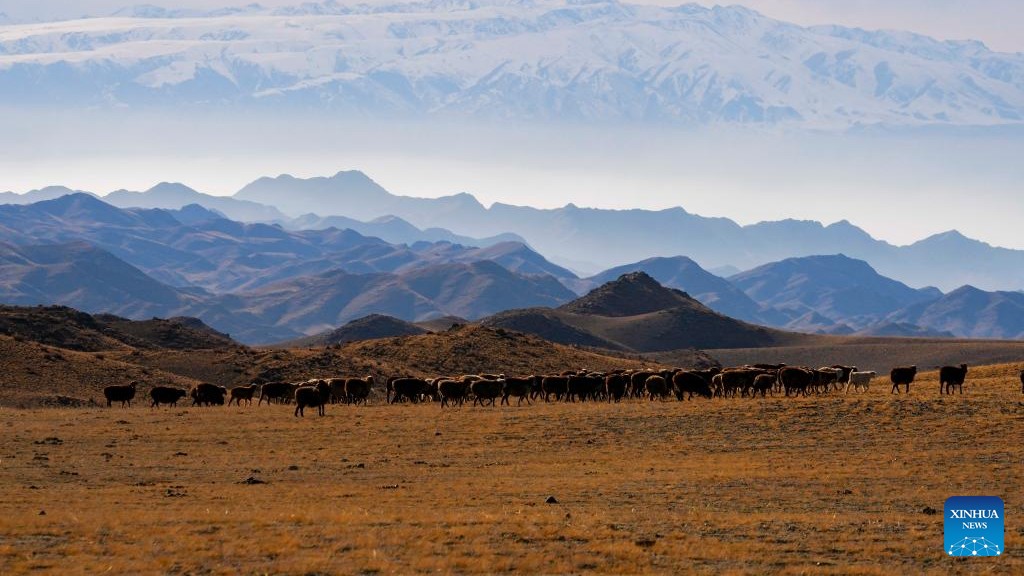

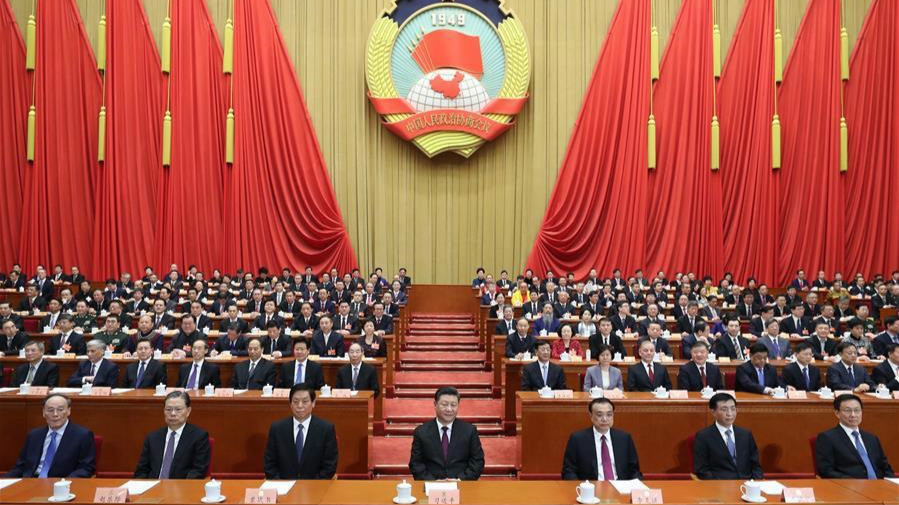
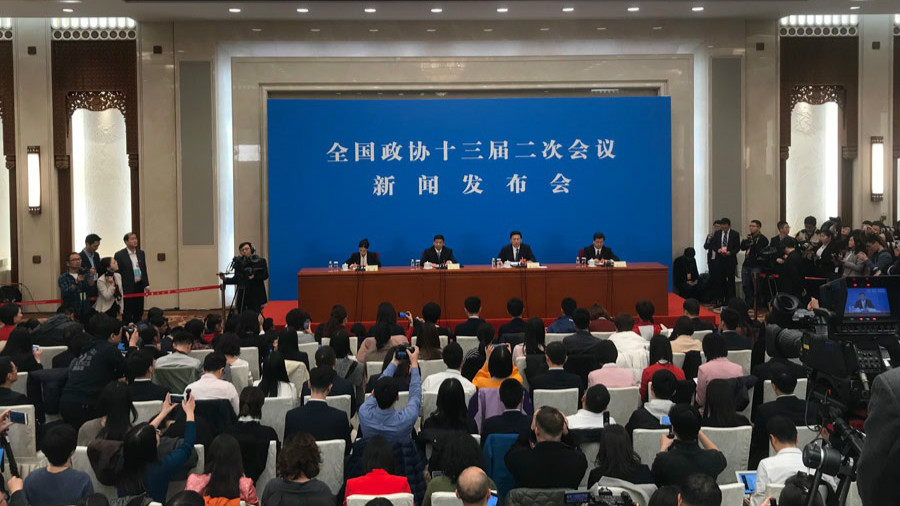
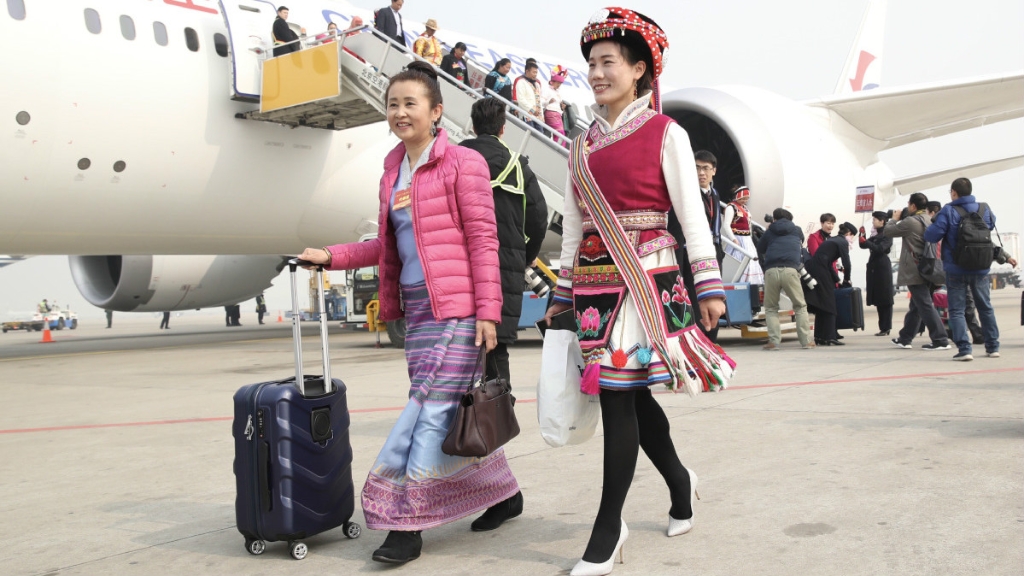
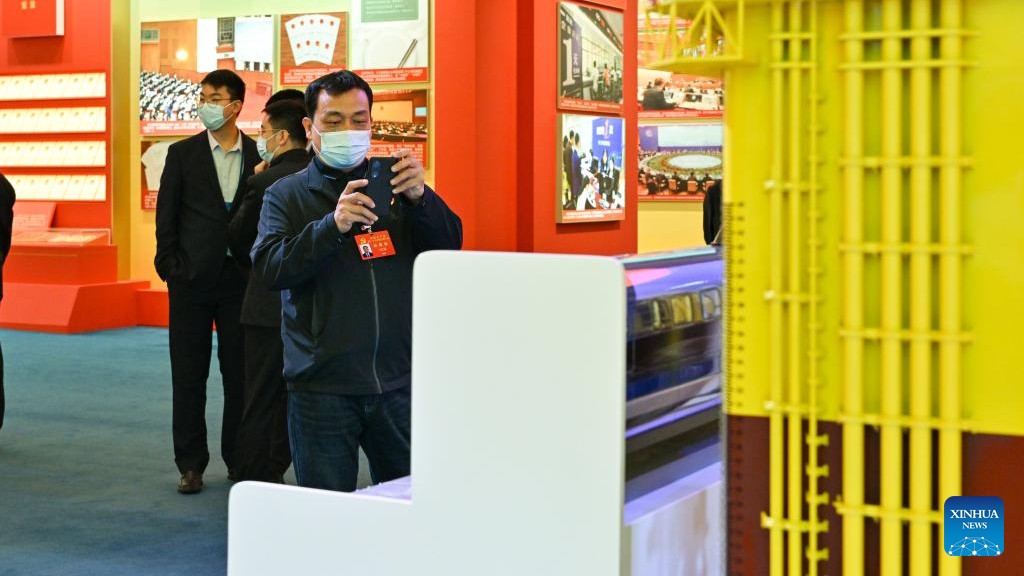
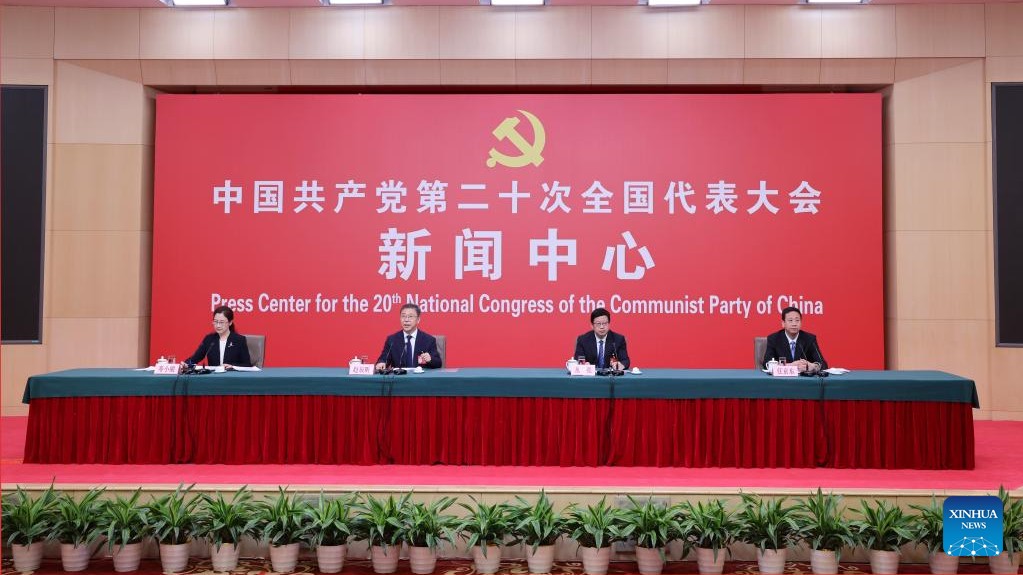
.jpg)
